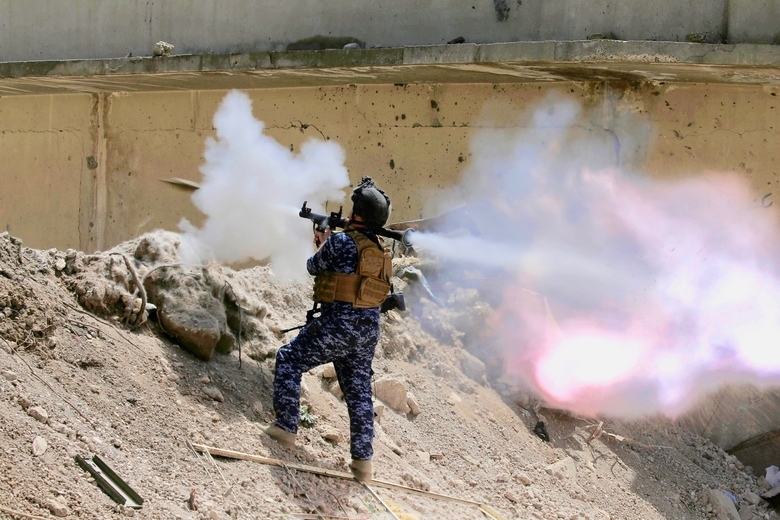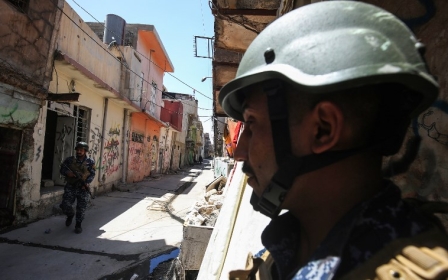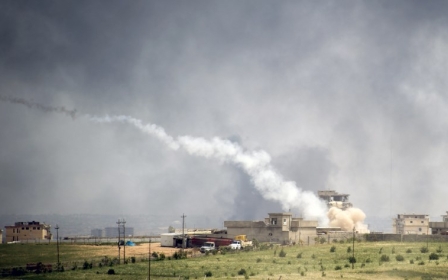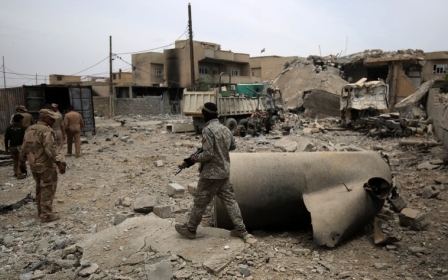Iraq's Shia forces advance towards Syrian border

Iraq's Iran-backed Shia paramilitary force said on Sunday it had dislodged the Islamic State (IS) group from several villages west of Mosul, making further progress towards the border with Syria.
The villages taken by the Popular Mobilisation paramilitary force include Kojo, where IS militants abducted hundreds of Yazidi women in 2014, including Nadia Murad and Lamiya Aji Bashar, recipients of the European Parliament's Sakharov Prize for Freedom of Thought.
Kojo and the other villages of the Sinjar mountain region will be returned to the Yazidi community, a Popular Mobilisation leader, Abu Mahdi al-Muhandis, told Iraqi state television.
Popular Mobilisation Units are taking part in the US-backed Iraqi campaign to defeat IS in Mosul and the surrounding province of Nineveh. The force reports nominally to Iraq's Shia-led government and includes Iranian military advisers.
Iraq's government is aiming to control the border area with Syria in coordination with the Iranian-backed army of Syrian President Bashar al-Assad.
Linking up the two sides would give Assad a significant advantage in battling a six-year rebellion against his rule.
The region immediately alongside the border on the Iraqi side is either under the control of IS or of Kurdish forces. IS also controls parts of Syria.
Iraqi government armed forces are focusing their effort on dislodging rebels from the city of Mosul, IS's de-facto capital in Iraq.
Since the campaign began in October, the rebels have lost control of the city except for an enclave alongside the western bank of the Tigris River.
On Saturday, Iraqi forces launched an operation to capture the enclave, which includes the densely populated Old City centre and three adjacent districts.
The fall of the city would, in effect, mark the end of the Iraqi half of the "caliphate" declared nearly three years ago by IS leader Abu Bakr al-Baghdadi from Mosul.
Middle East Eye propose une couverture et une analyse indépendantes et incomparables du Moyen-Orient, de l’Afrique du Nord et d’autres régions du monde. Pour en savoir plus sur la reprise de ce contenu et les frais qui s’appliquent, veuillez remplir ce formulaire [en anglais]. Pour en savoir plus sur MEE, cliquez ici [en anglais].




